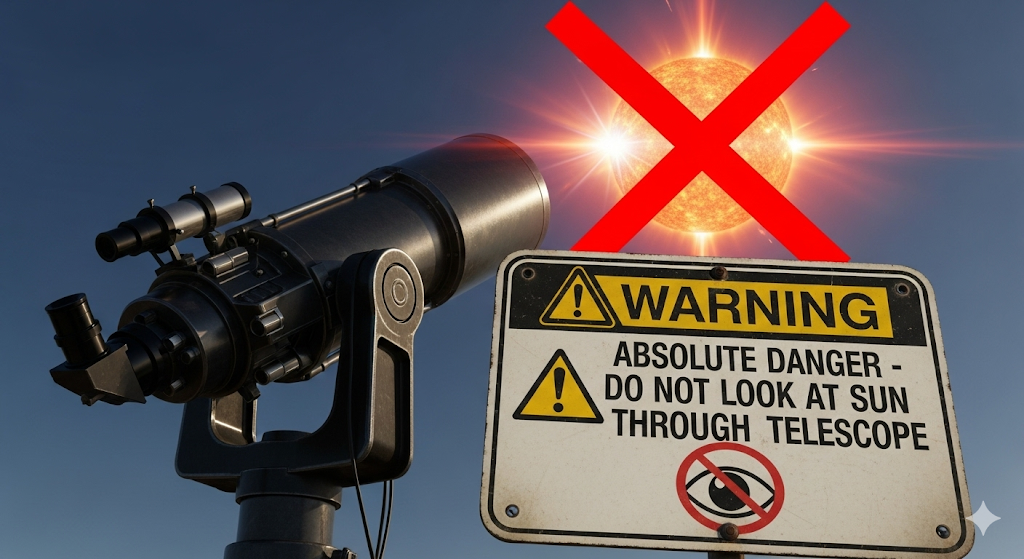
5 Essential Telescope Safety Precautions for Beginners
Share
5 Precautions to Take While Handling a Telescope: Beginner’s Safety Guide
Introduction: Protecting Your Telescope and Yourself
A telescope is your gateway to the stars, but it’s also a precision instrument that requires careful handling. Beyond keeping your optics safe, observing responsibly ensures your own health and safety. This guide highlights the five most important precautions for beginners so you can enjoy astronomy with confidence.
1. Never Look at the Sun Without Proper Filters
Looking at the Sun through a telescope without a certified solar filter can cause instant, permanent blindness and damage your instrument. Always use purpose-built aperture filters from reputable suppliers, and check them for pinholes or scratches before use. Alternatively, use the projection method with extreme caution.

2. Protect the Optics
Fingerprints, dust, and scratches can ruin delicate coatings on lenses and mirrors. Always handle eyepieces and tubes by their edges, keep dust caps on when not in use, and clean only when absolutely necessary with proper optical tools (air blower, microfiber cloth, or lens cleaning solution).

3. Ensure Stability and Balance
Telescopes are heavy and can topple if not balanced correctly. Always set up on level ground, fully extend tripod legs, and secure all clamps. Balance the tube properly (especially with equatorial mounts) and be mindful of surroundings like pets, children, or wind.

4. Manage Power Safely (For Motorized Telescopes)
Use only recommended power supplies with the correct voltage and amperage. Keep cables tidy to avoid tripping hazards, ensure slack for telescope movement, and keep power connections dry. If multiple devices are used, plug them into a surge-protected power strip.
5. Personal Safety While Observing
Stargazing often means working in the dark and cold. Preserve night vision by using dim red lights, dress warmly in layers, and stay hydrated. Clear the observing area of hazards and avoid observing alone in unfamiliar places. Bring snacks and take breaks to stay comfortable during long sessions.

Conclusion: Safe Stargazing, Lasting Memories
By following these five essential precautions, you’ll safeguard both your equipment and your eyesight. Responsible astronomy ensures years of rewarding experiences exploring the universe.
External Resource:
For more information on eye safety, visit the World Health Organization’s page on blindness and visual impairment.
FAQs
Q1: Can sunglasses replace a solar filter?
No. Sunglasses block very little radiation and cannot prevent blindness. Only certified solar filters should be used.
Q2: What if my solar filter has a small scratch?
Do not use it. Even a pinhole can cause dangerous concentrated beams. Replace it immediately.
Q3: Can I leave my telescope outside overnight?
It’s not recommended. Exposure to dew, dust, and weather can damage it. Always store it indoors after use.
Q4: How do I prevent dew on my telescope?
Use dew shields, dew heaters, or fans depending on your telescope type. Keeping optics slightly warmer than ambient air prevents condensation.
Q5: Are cheap eyepieces safe?
Yes, but they offer poor image quality. Upgrading to better eyepieces like Plössl designs significantly improves the viewing experience.
